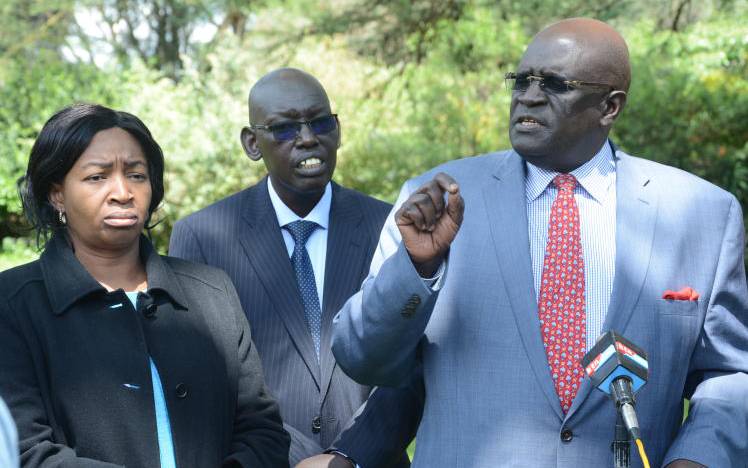×
The Standard e-Paper
Kenya’s Boldest Voice

Education CS Prof George Magoha with his PS Belio Kipsang and Nominated Senator Agnes Zani during a press conference on Competence Based Curriculum at Enashipai Resort in Naivasha. [File, Standard]
Pupils will sit two national examinations under the new education curriculum, Education Cabinet Secretary George Magoha has said.